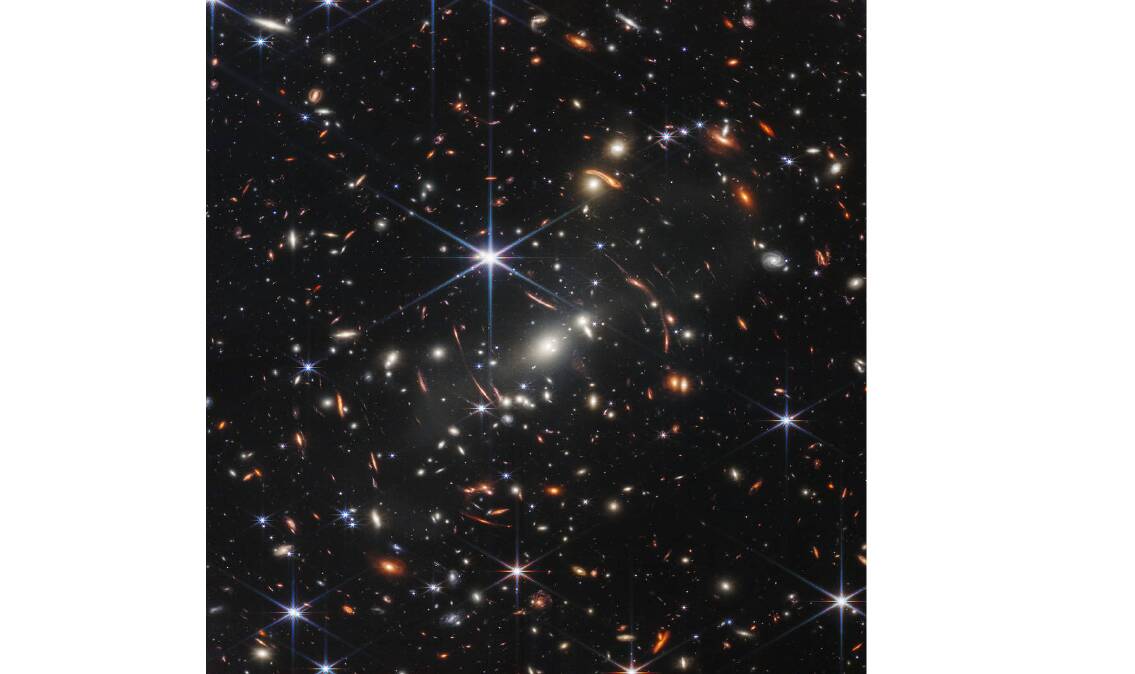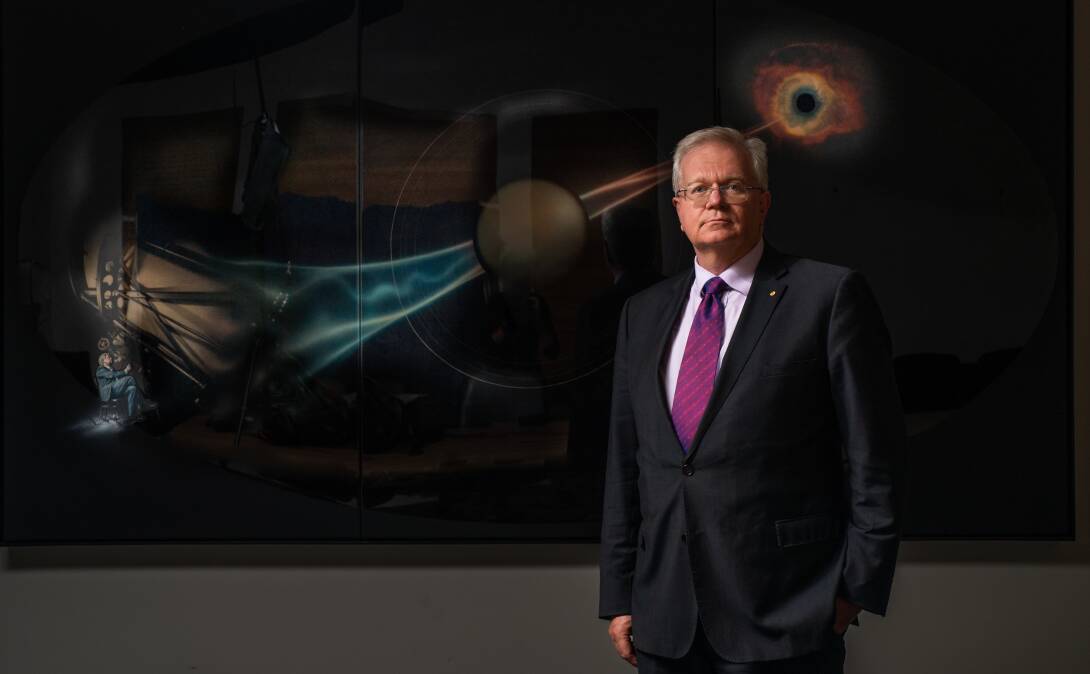
The deepest and sharpest images of the distant universe released by NASA's new space telescope could eventually discover life.
The first image from the $US10 billion James Webb Space Telescope, released on Tuesday, is the furthest humanity has ever seen in time and distance.
Astrophysicist and cosmologist at the ANU Mount Stromlo Observatory, Brad Tucker, described the new telescope as something that will completely change research.
"I think what's exciting is the unknown, finding the thing that we don't know, we will find those things, we will find those new discoveries that will change our view of cosmology and studying planets," he said.
"We're starting to measure the atmospheres of all these planets around other stars. Are they habitable? Could they host life? Could there be something living there? These are the questions that start to be answered by James Webb."
The James Webb telescope was launched into space, designed for infrared astronomy - a sub-discipline specialising primarily in the observation and analysis of astronomical objects.
James Webb is the most powerful telescope ever launched into space, with stronger infrared resolution and sensitivity compared to the Hubble telescope which produced previous images of space.
"All of these [original] images have been taken by Hubble and so you can kind of directly compare [James Webb with] the sensitivity, the resolution, the depth and quite literally new colours of light that you couldn't get with Hubble in a side-by-side comparison," Dr Tucker said.

"When Hubble was launched back in 1990, pretty much every major discovery almost has involved Hubble since then and now we're about to take that next leap with the James Webb."
ANU vice-chancellor Brian Schmidt won his Nobel Prize in physics for the discovery of the accelerating expansion of the universe through observations of distance supernovae and used the Hubble telescope.
"The Hubble telescope works in optical light and it remains working and important ... we use the Hubble space telescope to look back about five, or even eight billion years, but we were ultimately limited by the size of the telescope and the fact that it just wasn't very sensitive in the infrared," Professor Schmidt said.
"[The James Webb] telescope will allow us to look back further but it will also allow us to probably better get rid of any effects of dust that's throughout the universe."
The image taken by the JWST compared to one taken by Hubble, of the galaxy cluster SMACS 0723.
— Sophia Gad-Nasr (@Astropartigirl) July 11, 2022
It's s a gravitational lens, showing us the light of galaxies that are far behind the cluster in arcs around it. I tried to orient them the same. LOOK AT THE DIFFERENCE. pic.twitter.com/8jphIUHRjn
Professor Schmidt said the new telescope will be "illuminating all sorts of things back in the past" and will be able to look back further to see what was going on earlier in the universe.
"Astronomy has been full of surprise after surprise and there is no doubt in my mind that James Webb will create lots of surprises or illuminate lots of surprises over the coming decade," he said.

While Professor Schmidt said it is unlikely life will be discovered, the new telescope will be able to help scientists see if there are "signatures of life around nearby planets".
"The evidence of bacteria, potentially even photosynthesis signatures, all sorts of interesting things that cannot exist naturally, but are possible with the existence of life, those are the types of questions we're going to be able to look at," he said.
Professor Schmidt said the ANU will "be big users of the James Webb" which he said is an exciting opportunity.
"I have to admit, it's kind of hard for me being vice-chancellor right now because I just don't have the time to go in and focus on doing this ... I'm looking forward to being able to do that when I'm finished being vice-chancellor," he said.
We've made it a whole lot easier for you to have your say. Our new comment platform requires only one log-in to access articles and to join the discussion on The Canberra Times website. Find out how to register so you can enjoy civil, friendly and engaging discussions. See our moderation policy here.







